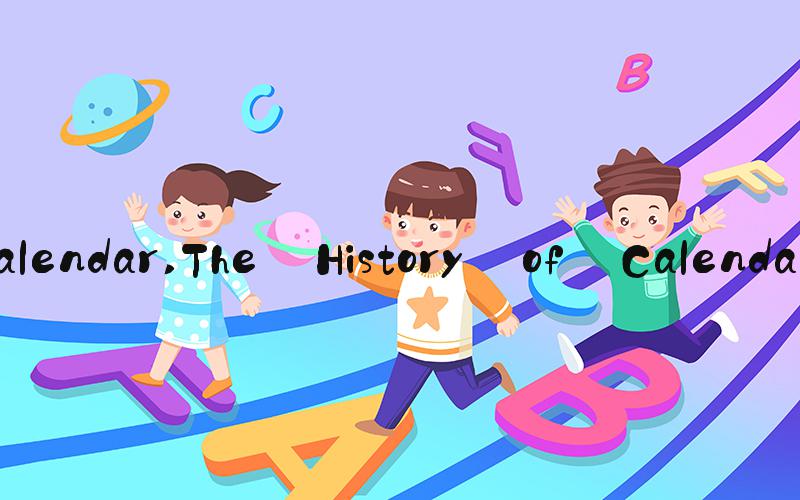 Introduction
IntroductionCalendars are an essential tool for organizing our daily lives. They help us remember important dates such as birthdays, anniversaries, meetings, and appointments. They also help us plan ahead by allowing us to see what's coming up. Calendar systems have been around for thousands of years, with the earliest known calendars dating back to ancient civilizations such as the Egyptians and the Babylonians. Today, we have access to a wide variety of calendars that can be customized to fit our specific needs.
The History of CalendarsThe ancient Egyptians were one of the first civilizations to create a calendar. Their calendar was based on the cycles of the moon and consisted of 12 months of 30 days each, with five additional days added at the end of the year. The Babylonians also created a calendar that was based on the cycles of the moon, but they added an extra month to their calendar to align it with the seasons.
In 45 BC, Julius Caesar introduced the Julian calendar, which was based on the cycles of the sun. This calendar consisted of 12 months, with an average of 30 or 31 days per month. However, this calendar was flawed because it did not take into account the fact that a solar year is actually 365.2422 days long. As a result, the Julian calendar gradually became out of sync with the seasons.
In 1582, Pope Gregory XIII introduced the Gregorian calendar, which is the calendar system that we still use today. The Gregorian calendar is based on the cycles of the sun and has 365 days per year, with a leap year added every four years to keep the calendar in sync with the seasons.
The Benefits of Using a CalendarUsing a calendar has many benefits. It helps us to stay organized, plan ahead, and manage our time effectively. It also helps us to remember important events and deadlines. By having a clear view of our schedule, we can avoid overbooking ourselves and reduce stress levels.
Moreover, using a calendar can even help improve mental health. Knowing what tasks and events are coming up helps reduce anxiety and gives us a sense of control over our lives. It also helps us to prioritize our tasks and focus on what's most important.
Different Types of CalendarsThere are many different types of calendars available, each with their own unique features and benefits. Here are a few examples:
Wall Calendar: A traditional wall calendar is a great option for those who prefer a physical reminder of important dates. These calendars come in a variety of sizes and designs, and can be hung on a wall or placed on a desk.
Electronic Calendar: An electronic calendar is a digital alternative to traditional paper calendars. Electronic calendars can be accessed from a computer, smartphone, or tablet and can be easily synced between devices.
Planner: A planner is a type of calendar that includes additional features such as to-do lists, notes sections, and goal setting. Planners can be purchased in a variety of formats, including daily, weekly, and monthly.
Online Calendar: An online calendar is a web-based application that allows users to access their calendar from anywhere with an internet connection. Online calendars can be shared with others, making them a great option for teams and families.
Mobile Calendar: A mobile calendar is a type of electronic calendar that is specifically designed for use on a smartphone or tablet. These calendars can be accessed from anywhere and are a convenient option for those on-the-go.
ConclusionCalendars have come a long way since their early beginnings in ancient civilizations. They continue to be an essential tool for organizing our busy lives and keeping track of important events and deadlines. Whether you prefer a traditional paper calendar or a high-tech electronic version, there is a calendar system out there that is sure to meet your needs.
